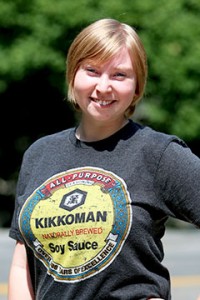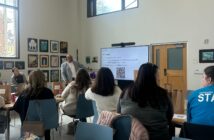Have you ever wondered why I have PTSD? Probably not, because the only person reading this who knows me is my mom. Hi, mom.
It’s OK, though, I’m going to answer your question anyway. But first, I’m going to give you a small vocab lesson.
Guys, PTSD arises out of trauma. That trauma can be war, a near-death experience, sexual assault, rape, abuse, or even having to watch any of those things. And that’s an abridged list. You don’t have to actually be physically harmed for trauma to happen, and sometimes PTSD symptoms don’t develop right away.
Overall, though, PTSD symptoms come in three categories: ‘re-experiencing’ symptoms, including flashbacks and nightmares; ‘avoidance’ symptoms, including memory issues, avoiding ‘triggers,’ or feeling guilty; and ‘hyperarousal’ symptoms, including insomnia, being easily startled or even angry outbursts. You don’t have to have all of these symptoms to have PTSD, but usually a mix of symptoms from all three categories are seen.
There’s also a host of really fun side effects like depression and anxiety issues, plus being prone to substance abuse.
I’m going to tell you right now: I don’t have PTSD because I was in any war. I wasn’t abused. I didn’t have to watch someone experience something awful. And I haven’t had any near-death experiences unless you count that one time I saw a rattlesnake.
I know PTSD is only well-known because of war veterans. In fact, I just googled PTSD statistics and 21 of the first 30 results had to do with soldiers or veterans. I saw one single link that mentioned rape causing PTSD. Now, that’s not to say that veterans don’t deserve it. But it seems a little disproportionate when you think about it.
Which is weird, because the Anxiety and Depression Association of America actually said that “rape is the most likely trigger of PTSD.”
Which brings us to me.
My PTSD stems from three counts of sexual assault and one of rape. The rape and one assault happened at Lehigh.
There you go. I’m not a war vet. I can’t say that some big violent thing happened in my life that made me this way. Some people just made some stupid decisions and those decisions happened to involve ignoring any rights I had over my own body.
So, yeah. That all happened. My PTSD developed the most after the second assault, which happened my senior year of high school. I spent the whole year having nightmares, flashbacks and panic attacks… and I lost a lot of friends.
By the time I got to college, I was hoping that the symptoms would fade. They didn’t, because why would they? So, I went to my first therapy appointment. The therapist characterized my symptoms as a “big black blob taking over my brain,” the image of which gave me more issues with depression and anxiety, so I didn’t go back. I tried group therapy, I wrote the beginnings of this column and I tried to keep it together.
The hardest thing I’ve had to do so far isn’t being diagnosed or accepting that I needed medication or even being put down for my problems during group therapy.
It was having to face myself and say, “This is who I am now.”
I spent over a year constantly comparing myself to — well, myself. To who I was pre-trauma. And that person, frankly, doesn’t exist anymore. I spent 17 years getting to know myself only to have that person ripped away.
It took a while. Eventually, I realized that I can’t expect myself to revert to who I was pre-trauma. I will never be that social. I will never be able to handle that workload. I will never be that carefree again. But that’s OK, I guess. I can spend my time getting control over PTSD and trying to improve on who I am post-trauma.
PTSD is fickle, and it’s hard to pin down sometimes. It can really drive a knife into your life, and sometimes it takes years to stitch it back together. You’ll never be the same, but it pays to remember that maybe you don’t have to be.






Comment policy
Comments posted to The Brown and White website are reviewed by a moderator before being approved. Incendiary speech or harassing language, including comments targeted at individuals, may be deemed unacceptable and not published. Spam and other soliciting will also be declined.
The Brown and White also reserves the right to not publish entirely anonymous comments.